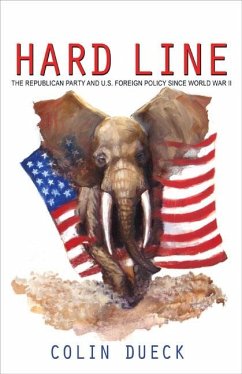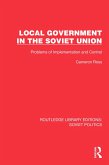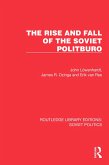Republican foreign policy and the conservative leaders who shaped it
Hard Line traces the history of Republican Party foreign policy since World War II by focusing on the conservative leaders who shaped it. Colin Dueck closely examines the political careers and foreign-policy legacies of Robert Taft, Dwight Eisenhower, Barry Goldwater, Richard Nixon, Henry Kissinger, Ronald Reagan, George H. W. Bush, and George W. Bush. He shows how Republicans shifted away from isolationism in the years leading up to World War II and oscillated between realism and idealism during and after the cold war. Yet despite these changes, Dueck argues, conservative foreign policy has been characterized by a hawkish and intense American nationalism, and presidential leadership has been the driving force behind it.
What does the future hold for Republican foreign policy? Hard Line demonstrates that the answer depends on who becomes the next Republican president. Dueck challenges the popular notion that Republican foreign policy today is beholden to economic interests or neoconservative intellectuals. He shows how Republican presidents have been granted remarkably wide leeway to define their party's foreign policy in the past, and how the future of conservative foreign policy will depend on whether the next Republican president exercises the prudence, pragmatism, and care needed to implement hawkish foreign policies skillfully and successfully. Hard Line reveals how most Republican presidents since World War II have done just that, and how their accomplishments can help guide future conservative presidents.
Hard Line traces the history of Republican Party foreign policy since World War II by focusing on the conservative leaders who shaped it. Colin Dueck closely examines the political careers and foreign-policy legacies of Robert Taft, Dwight Eisenhower, Barry Goldwater, Richard Nixon, Henry Kissinger, Ronald Reagan, George H. W. Bush, and George W. Bush. He shows how Republicans shifted away from isolationism in the years leading up to World War II and oscillated between realism and idealism during and after the cold war. Yet despite these changes, Dueck argues, conservative foreign policy has been characterized by a hawkish and intense American nationalism, and presidential leadership has been the driving force behind it.
What does the future hold for Republican foreign policy? Hard Line demonstrates that the answer depends on who becomes the next Republican president. Dueck challenges the popular notion that Republican foreign policy today is beholden to economic interests or neoconservative intellectuals. He shows how Republican presidents have been granted remarkably wide leeway to define their party's foreign policy in the past, and how the future of conservative foreign policy will depend on whether the next Republican president exercises the prudence, pragmatism, and care needed to implement hawkish foreign policies skillfully and successfully. Hard Line reveals how most Republican presidents since World War II have done just that, and how their accomplishments can help guide future conservative presidents.









